WSO Greener Choice
From a surfboard fin to a hyper-technical sailing jacket - every product has an environmental and social impact. To better understand how watersports brands are trying to minimise this footprint and produce products with a lesser impact on our planet, you can make a more informed choice about how you invest in your gear. But this isn’t always easy, with a mix of technical eco jargon and blanket sustainability claims creating some tricky waters to navigate through.
To help light the way, we’ve developed WSO Greener Choice. This is a set of curated pages of products that have a lessened environmental impact - broken down into four primary sustain categories. In this article, we’ll be providing a clear overview of why we have chosen these categories, their relevance within the watersports world, and how a product is then designated a category.

Why?
Our Greener Choice listings are selected against product guidelines that aim to give an impartial, fact-driven ‘yes or no’ choice - without the influence of brand marketing copy and current eco trends.
For our customer, this ensures a clear and concise way to shop more sustainable gear. For our brands, it will act as an incentive for them to do better, and for us, it’s all about getting our community out there in the best gear possible. For as long as possible. Before repairing, re-selling, donating, or recycling. A mindset shift to ‘greener’ thinking.
The Breakdown
Reviewing the following attributes when you browse can help reduce your impact on the planet, your chosen playgrounds, and the people that make the products. To keep it simple, we’ve used four header categories, with specific criteria under each - allowing for a trusted tick box exercise for when new products are being considered for Greener Choice. Here's a note on each, as well as a bit on why they are relevant within the watersports industry.
We have included a list of references at the base of this article if you wish to find out more.
Header categories:
- Considered Material
- Crafted for Circularity
- Made Local
- Natural Rubber Wetsuits

Considered Materials
This category focuses on the manufacturing process, what makes up the product and how those base materials were sourced. These mainly revolve around apparel (technical sailing wear, shorewear and casual wear), as well as accessories (towels, blankets, and beanies). The key criteria are as follows:
At least 95% organic material | Proving 100% is hard, but these products are right up there (e.g. cotton)
Bluesign® Approved | Every item carrying a bluesign product label has been manufactured to strict safety and environmental requirements. *
Repreve® | Transform plastic bottles into certifiable, traceable, high-performance yarn. **
PFC-free | No release of chemical compounds that are harmful to the environment and health when worn or washed. ***
BPA-free | No inclusion of BPA (within clothing or refillable water bottles), a well-studied hormone-disrupting chemical. ****
Fairtrade certification | Fairtrade certified cotton is produced in accordance with their rigorous environmental, economic and social standards. *****
Vegan leather
Responsibly sourced down (RDS) | Ensure to the highest possible standard that down (within outerwear) doesn’t come from animals subjected to unnecessary harm. ******
Responsible Wool Standard (RWS) | A certification for wool farmers and sellers that aims to improve the welfare of sheep and the land they graze on. *******
Bamboo

Crafted for Circularity
Products within this category either contain more that 50% recycled materials, or have been specifically made to support the upkeep or repair of another product. Recycling plastic bottles to produce polyester for outerwear, mid-layers, base-layers and accessories has become common practice for many brands. This allows for less virgin materials to be used in the manufacturing process, whilst actively reducing the amount of plastic and other materials that would have found their way into landfill.
When it comes to upkeep and repair kits, we have selected those that support or lengthen the lifespan of a ‘core’ watersports products - for example wetsuits, surfboards and high-tech sailing outerwear. You will find wetsuit shampoo, ding repair kits and neoprene repair glue within this list. The key criteria under Crafted for Circularity are as follows:
Repair products (tool kits)
Products to support upkeep (wetsuit shampoo etc.)
Contains at least 50% recycled materials
Made Local
We hope for this category to grow over the coming seasons, as we are keen to support more brands based on UK shores. Now we understand that this isn’t applicable to those based in central Europe and America (yet), but it does showcase a need for local goods and centralised supply chains. For instance, a product manufactured in the UK will have a much shorter journey to our warehouse, and then out to the majority of our customer base. This massively reduces the product’s carbon footprint, whilst also supporting a homegrown brand. But more to come on this one soon… The key criteria are as follows:
Made in Europe (if applicable)
Made within the UK
Materials sourced within the UK

Now more than ever, brands are making the move to ‘au naturel’. This is most apparent with Xcel announcing their commitment to being neoprene free by 2026 - A big move that’s prompted a lot of positive press. Billabong have also brought out the Furnace Natural, which is 85% neoprene free and infused with CiCLO® technology. This move away from neoprene may seem minor to some, but the environmental impacts are huge (in a positive way). Be sure to read our article on ‘‘Is Natural Rubber as Good as Neoprene?’ - SPOILER ALERT: Yes it is.
We have, however, split this category to include wetsuits that are more than 20% natural rubber. This is to support brands looking to improve their practices that haven’t fully committed to the 100% natural rubber way. As touched upon, the key criteria are as follows:
Made from at least 85% natural rubber
Made from at least 20% natural rubber
What’s next?
At launch, we will be highlighting these products under a central Greener Choice product page. Our aim is to get a solid platform to build and learn from, before we plan our next set of goals for the project. It is a work in progress, but we think that’s better than waiting for perfect solutions in an area that is constantly evolving.
We will be monitoring new stock against our guidelines, sharing updates when new gear is added and categories expanded - Further supporting and spotlighting when brands are improving their practices and products. By buying ‘greener’, you are actively reducing your carbon footprint at the point of purchase.
Now this isn’t saying that we’ve cracked it. We are still learning (as is everyone) and trying our best to do better. But we hope that our Greener Choice offering supports your browsing process in a positive, planet-focused way. Rather than having to search for keywords (eco, Yulex, green etc.) - you can simply head to our Greener Choice page and scroll through our more planet-friendly offerings.
As the list grows (which is looking very likely), so will our categorisations. So say you’re in the market for a natural rubber wetsuit for winter, you can easily find one in no more than 3 clicks from the homepage. Simple.
Shop Greener Choice here.
References
*Bluesign Criteria - https://www.bluesign.com/en/criteria
**Repreve, The Thread That Binds Us - https://repreve.com/discover-repreve
***Ispo.com, 10 Brands for PFC-free outdoor clothing - https://www.ispo.com/en/know-how/pfc-free-outdoor-clothing-how-avoid-harmful-substances
****Center for Environmental Health, What you Need to Know About BPA in Clothing - https://ceh.org/what-you-need-to-know-about-bpa-in-clothing/
*****Fairtrade International, Textiles - https://info.fairtrade.net/product/textiles
******Textile Exchange, The Responsible Down Standard - https://textileexchange.org/responsible-down-standard/
*******SCS Global Services, Responsible Wool Standard - https://www.scsglobalservices.com/services/responsible-wool-standard
Updated on 5th January 2024
Originally published on 9th November 2023 in Sustainability










































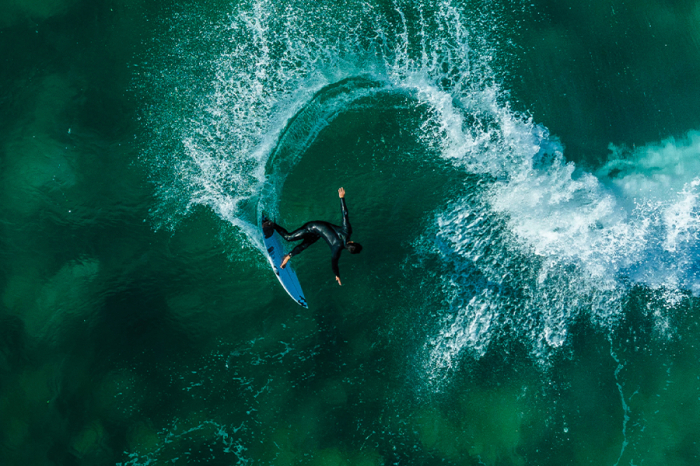






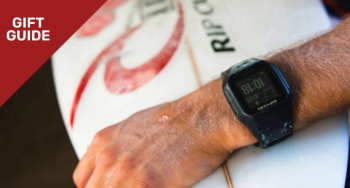

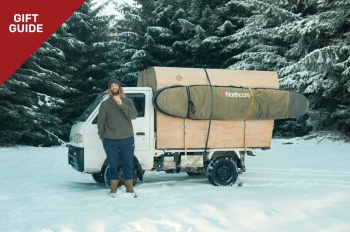
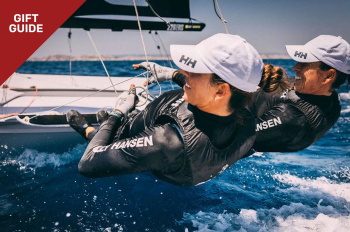
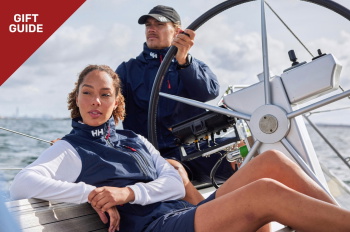
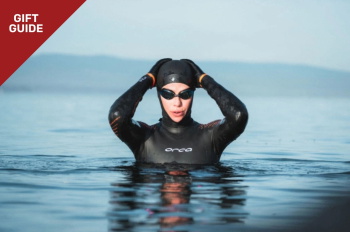
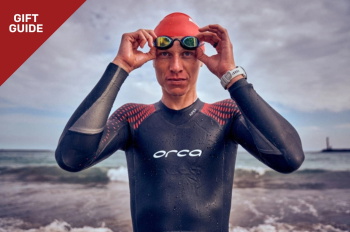
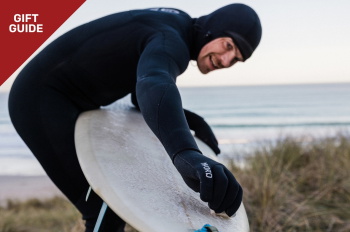
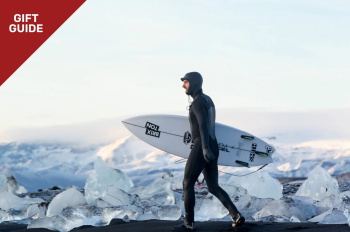

 Visit the US site
Visit the US site 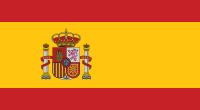 Continuar al ES
Continuar al ES